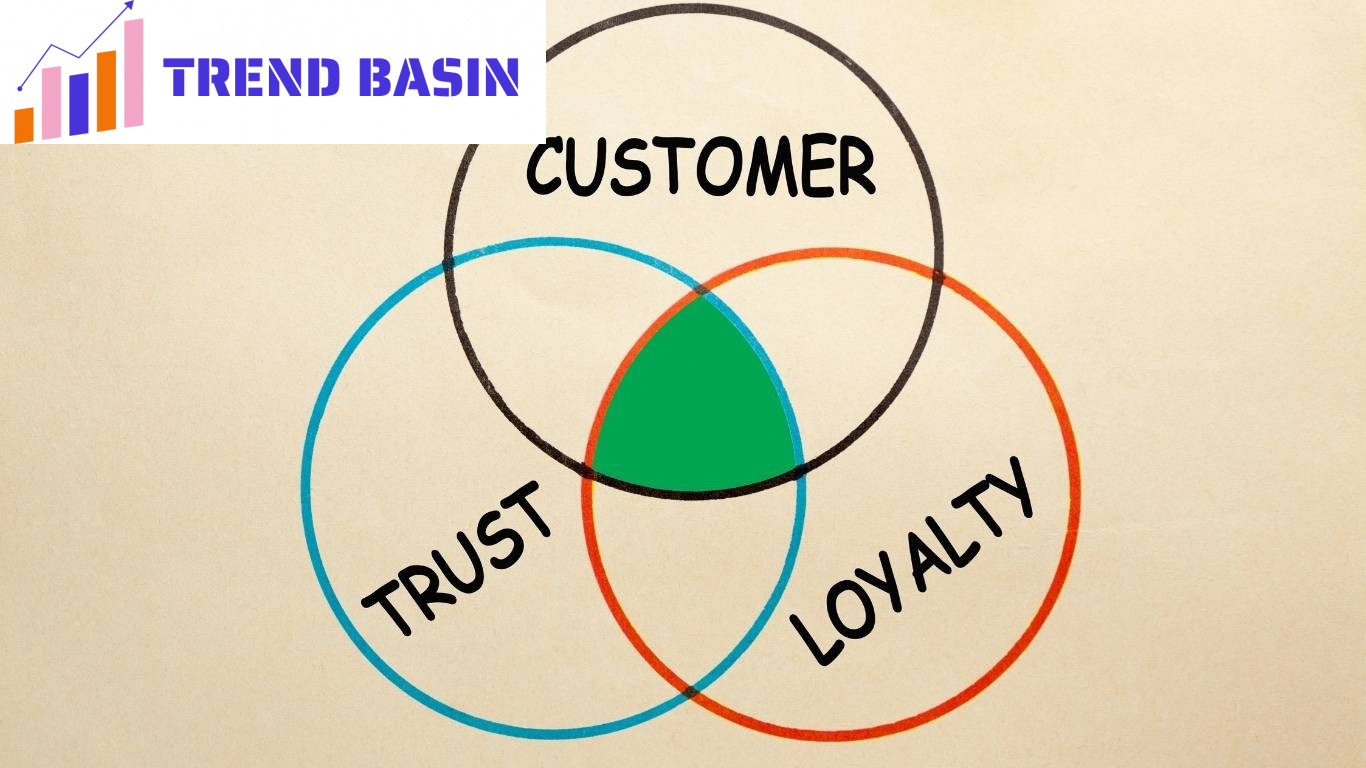The Power of Testimonials and Reviews in Building Trust for Your Business
In today’s digital landscape, trust is one of the most critical factors for any business looking to thrive.
With countless options available to customers, standing out from the crowd can be a challenge. This is where testimonials and reviews come into play.
They have the power to bridge the trust gap between you and your potential customers. As part of the broader spectrum of social proof, testimonials and reviews directly influence a customer’s decision to purchase, making them crucial for your online success.
According to a report by BrightLocal, over 90% of consumers read online reviews before visiting a business. These insights showcase the direct impact of testimonials and reviews on brand perception and trustworthiness.
The psychology behind testimonials and reviews
The concept of social proof
Social proof is a psychological concept where people follow the actions of others in an attempt to reflect correct behavior in a given situation. This is especially powerful in the digital age, where customers look to their peers for validation. Testimonials and reviews are two prime examples of social proof, providing third-party endorsements that make your business appear more trustworthy.
Consumers are much more likely to trust the opinions of other customers than company-led marketing efforts. In fact, statistics show that 84% of people trust online reviews as much as personal recommendations.
Example: Airbnb leveraged user reviews to build trust among potential travelers. The company initially struggled to convince users to stay in strangers’ homes, but by featuring user reviews and experiences, they managed to create a community-based platform built on trust.
Trust signals: Why do testimonials and reviews work?
Testimonials and reviews act as “trust signals” by providing validation from past customers. When potential buyers see that others have had positive experiences, they are more inclined to feel safe making a purchase. This is especially true when reviews are detailed and relatable. The more authentic a testimonial appears, the stronger the trust it builds.
Verified reviews, which highlight real customer experiences, help create an even stronger connection with new customers. They are more believable, and this authenticity enhances trust and can lead to increased conversions.
Types of testimonials and reviews for different stages of the buyer’s journey
Customer testimonials (written or video)
Customer testimonials, whether written or video, offer a personal connection between the brand and its users.
Written testimonials are great for quick reads, while video testimonials add a human element that resonates emotionally. Both formats can help prospective customers understand how your product or service has positively impacted others.
Example: Dropbox effectively uses video testimonials to showcase how its product helps businesses collaborate and store information securely. These success stories not only highlight the platform’s benefits but also provide relatable, real-world scenarios.
Pros and cons of video testimonials:
- Pros: Higher emotional engagement, authenticity, shareability.
- Cons: More resource-intensive, higher production costs.
Third-party platform reviews (Google, Yelp, Trustpilot)
Third-party reviews, especially on platforms like Google and Yelp, play a vital role in enhancing local SEO and building trust. They offer unbiased feedback from customers, which is often more convincing than testimonials directly hosted on your website.
Key points:
- Google reviews not only improve your online credibility but also help with local SEO, impacting your rankings and visibility in search results.
- Yelp and Trustpilot are widely recognized review platforms that customers trust.
Example: Google reviews have proven effective in helping local businesses, such as cafes and retail stores, rank higher in search results, particularly in “near me” searches.
Influencer or expert testimonials
Leveraging influencer or expert endorsements can add another layer of credibility. By aligning your brand with industry thought leaders, you gain access to their audience and reinforce your brand’s authority.
Example: Razer, a global gaming equipment company, has used endorsements from professional gamers to strengthen its position in the market. By aligning with experts, Razer builds trust with gamers who look up to these influencers.
How to collect impactful testimonials and reviews
Strategies to request testimonials
The key to collecting powerful testimonials and reviews lies in timing. Asking customers for feedback at the right moment can significantly increase response rates. The best time to ask for a review is when the customer has just had a positive experience, like after the completion of a service or the receipt of a product.
To increase the likelihood of receiving reviews:
- Send a follow-up email with a direct link to your review page.
- Incorporate a “Leave a Review” CTA on your website or in your emails.
- Offer small incentives, such as discounts or freebies, in exchange for reviews.
Tip: Personalize your request. A personalized message with a call for a testimonial can increase response rates by 20-30%.
Creating a seamless review process
Making the process of leaving reviews as simple as possible is essential. Platforms like Trustpilot, Yotpo, and Feefo are user-friendly tools that allow customers to submit reviews quickly, ensuring a hassle-free experience.
By featuring verified reviews, your business can increase trust, as customers know the reviews are genuine.
Displaying and leveraging testimonials to boost conversions
Where to place testimonials on your website
Strategically placing testimonials at key points in the buyer’s journey can boost your conversions. Common placements include:
- Homepage: Create a strong first impression with high-impact testimonials.
- Product pages: Use testimonials that highlight specific features or benefits.
- Checkout pages: Reduce last-minute doubts with customer feedback to reassure buyers.
Testimonials that address common customer pain points, such as concerns about quality, shipping, or customer support, are highly effective in removing purchasing obstacles.
Creating testimonial videos
Video testimonials convert better than written ones because they convey emotions more vividly. You can create impactful, authentic video testimonials by focusing on real customer experiences, asking open-ended questions, and showcasing a diverse range of customers.
Example: Zendesk uses a variety of testimonial videos from different industries, showing how its customer service platform solves specific business challenges.
Using testimonials in email marketing
Including testimonials in email campaigns is a powerful way to nurture leads and build trust. You can feature customer success stories, showing how others benefited from your product or service, to encourage new customers to follow suit.
Case study: Evernote uses customer success stories in email campaigns to highlight the ways their product adds value. These stories act as trust-building tools, encouraging customers to upgrade their accounts.
The role of reviews and testimonials in SEO
Impact on local SEO
Customer reviews play a crucial role in local SEO. Google uses reviews as a ranking signal, especially for local businesses. High-quality, consistent reviews can boost your Google My Business profile, improving visibility in local searches.
Example: Local restaurants with high Google reviews are more likely to appear in “near me” searches, making them more visible to potential customers.
User-generated content and SEO benefits
User-generated content (UGC) like reviews provides fresh, relevant content for your website, which search engines love. Positive reviews also help you rank for long-tail keywords that are naturally mentioned in customer feedback.
By using real customer language in your reviews, you can organically optimize your content for search engines, giving you an edge over competitors.
Case studies: Successful use of testimonials and reviews to build trust
Case study 1: Shopify
Shopify used customer success stories to elevate its credibility among small business owners. By featuring testimonials from real entrepreneurs, Shopify created a library of content that not only built trust but also inspired others to start their own ventures.
Key takeaways:
- Highlighting real-world results can position your product as a solution to customer problems.
- Using testimonials across multiple channels (website, email, ads) increases their impact.
Case study 2: HubSpot
HubSpot incorporated detailed customer testimonials to alleviate buyer concerns. Their testimonials included specific results that showed how their platform addressed pain points, such as improving lead generation or boosting sales.
Key takeaways:
- Address common customer objections with real-world results from testimonials.
- Showcasing industry diversity appeals to a broader range of potential customers.
Case study 3: Glossier
Glossier has built its brand on user-generated reviews and testimonials. By encouraging customers to share their beauty routines and product reviews, Glossier created a community-driven brand that feels authentic and trustworthy.
Key takeaways:
- Turning reviews into a core part of your marketing creates brand loyalty.
- Authentic, relatable reviews can help build a strong community around your brand.
Best practices for handling negative reviews
Responding to negative reviews professionally
Negative reviews are inevitable, but they don’t have to hurt your brand. In fact, how you respond to them can build even more trust. Addressing negative feedback promptly and professionally demonstrates that you care about your customers’ experiences.
Example: Zappos is known for its exceptional customer service, often turning dissatisfied customers into loyal advocates by addressing their complaints promptly.
Encouraging a balance of positive and constructive feedback
While it may seem counterintuitive, having only positive reviews can sometimes raise red flags for potential customers. A balanced mix of positive and constructive feedback adds authenticity to your brand.
Encourage customers to leave genuine reviews, even if they aren’t perfect. Consumers are more likely to trust brands with a variety of reviews that showcase the full spectrum of customer experiences.
Conclusion: How testimonials and reviews can elevate your business
In today’s competitive digital market, building trust is critical to success. Testimonials and reviews provide the social proof necessary to bridge the trust gap, helping you connect with potential customers in an authentic and meaningful way.
By strategically collecting and displaying testimonials across your website, social media, and marketing campaigns, you can significantly enhance your brand’s credibility.
For more insights on how to leverage testimonials and reviews effectively, visit Trend Basin. Follow us on LinkedIn and Facebook to stay updated with the latest trends and tips.


